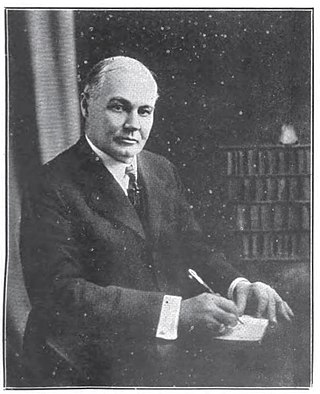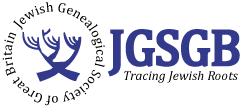
Genealogy is the study of families, family history, and the tracing of their lineages. Genealogists use oral interviews, historical records, genetic analysis, and other records to obtain information about a family and to demonstrate kinship and pedigrees of its members. The results are often displayed in charts or written as narratives. The field of family history is broader than genealogy, and covers not just lineage but also family and community history and biography.

The National Archives and Records Administration (NARA) is an independent agency of the United States government within the executive branch, charged with the preservation and documentation of government and historical records. It is also tasked with increasing public access to those documents that make up the National Archives. NARA is officially responsible for maintaining and publishing the legally authentic and authoritative copies of acts of Congress, presidential directives, and federal regulations. NARA also transmits votes of the Electoral College to Congress. It also examines Electoral College and constitutional amendment ratification documents for prima facie legal sufficiency and an authenticating signature.

The FamilySearch Library (FSL), formerly the Family History Library, is a genealogical research facility in downtown Salt Lake City. The library is open to the public free of charge and is operated by FamilySearch, the genealogical arm of the Church of Jesus Christ of Latter-day Saints.

The Society of Genealogists (SoG) is a UK-based educational charity, founded in 1911 to "promote, encourage and foster the study, science and knowledge of genealogy". The Society's Library is the largest specialist genealogical library outside North America. Membership is open to any adult who agrees to abide by the Society's rules and who pays the annual subscription. At the end of 2010, it had 11,014 members.
FamilySearch is a nonprofit organization and website offering genealogical records, education, and software. It is operated by The Church of Jesus Christ of Latter-day Saints, and is closely connected with the church's Family History Department. The Family History Department was originally established in 1894, as the Genealogical Society of Utah (GSU); it is the largest genealogy organization in the world.
Gary Mokotoff (born April 26, 1937) is an author, lecturer, and Jewish genealogy researcher. Mokotoff is the publisher of AVOTAYNU, the International Review of Jewish Genealogy, and is the former president of the International Association of Jewish Genealogical Societies (IAJGS). He is the creator of the JewishGen's Jewish Genealogical Family Finder and the Jewish Genealogical People Finder. He co-authored the Daitch–Mokotoff Soundex system. Mokotoff is co-author of Where We Once Walked: A Guide to the Jewish Communities Destroyed in the Holocaust.

The 1930 United States census, conducted by the Census Bureau one month from April 1, 1930, determined the resident population of the United States to be 122,775,046, an increase of 13.7 percent over the 106,021,537 persons enumerated during the 1920 census.
Granite Mountain is a mass of solid rock one mile up Little Cottonwood Canyon in the Wasatch Range of Utah, not too far from Salt Lake City, Utah. Despite its name, Granite Mountain is primarily composed of quartz monzonite, an igneous rock similar to granite in appearance, physical characteristics, and chemical composition. This is the same material used to construct the Salt Lake Temple and the facade of the LDS Conference Center.

FamilySearch Centers (FSCs), formerly Family History Centers (FHCs), are branches of the Family History Library in Salt Lake City, Utah, operated by the Church of Jesus Christ of Latter-day Saints. The centers supply resources for research and study of genealogy and family history. As of 2023, there are more than 5,700 FHCs in 145 countries.

JewishGen is a non-profit organization founded in 1987 as an international electronic resource for Jewish genealogy. In 2003, JewishGen became an affiliate of the Museum of Jewish Heritage – A Living Memorial to the Holocaust in New York City. It provides amateur and professional genealogists with the tools to research their Jewish family history and heritage.
The Next Generation of Genealogy Sitebuilding or TNG is a genealogy software installed in a web server developed by Darrin Lythgoe. It was mentioned in several press reviews used for genealogy site building. The data is stored in MySQL database tables and displayed in PHP scripting language which can be a module in different content management system platforms.

Ralph Emerson Twitchell (1859–1925) was an American attorney, historian, and politician who served as the mayor of Santa Fe, New Mexico and chairman of the Rio Grande Commission, which drafted a treaty between the United States and Mexico leading to the building of the Elephant Butte Dam. Twitchell helped organize the first National Irrigation Congress in 1891. He is credited with rescuing the Spanish Archives from the territorial capitol building when it caught fire on May 12, 1892, and also designing the first Flag of New Mexico in 1915.

The Jewish Genealogical Society of Great Britain (JGSGB) is a society for the study and encouragement of Jewish genealogy in Great Britain. The society is a member society of the International Association of Jewish Genealogical Societies.

Findmypast is a UK-based online genealogy service owned, since 2007, by British company DC Thomson. The website hosts billions of searchable records of census, directory and historical record information. It originated in 1965 when a group of genealogists formed a group named "Title Research". The first internet website went live in 2003.
Sallyann Sack-Pikus is an American genealogist and psychologist, and editor of Avotaynu Magazine, a journal of Jewish genealogy and scholarship. Sack is the only genealogist listed in Jewish Women in America.
GenealogyBank.com is an online subscription genealogical service that provides access to records useful in family history research. GenealogyBank is one of the largest collections of digitized U.S. newspapers, dating back to 1690. In addition to digital newspaper archives, GenealogyBank also offers other online genealogy resources including the Social Security Death Index, obituaries, government publications, and historical books.
James William Grant FRSE FRAS, 3rd Laird of Wester Elchies (1788–1865) was a Scottish astronomer and landowner. On 23 July 1844 he was the first person to observe and record the existence of the star Antares B.

Free UK Genealogy is a charitable incorporated organisation (CIO) acting as an umbrella organisation for FreeBMD, FreeREG and FreeCEN. The charity was formerly known as FreeBMD.

Miriam Weiner is an American genealogist, author, and lecturer who specializes in the research of Jewish roots in Poland and the former Soviet Union. Weiner is considered to be one of the pioneers of contemporary Jewish genealogy through her work to open up archives and is described as a trail-blazing, highly respected guide and leading authority on archival holdings and resources in pre-war Belarus, Lithuania, Moldova, Poland, and Ukraine.
Nadia (Sarah-Beila) Ihorivna Lipes is a Ukrainian writer, historian, licensed tour guide, public figure. One of the leading genealogists in the post-Soviet states.













